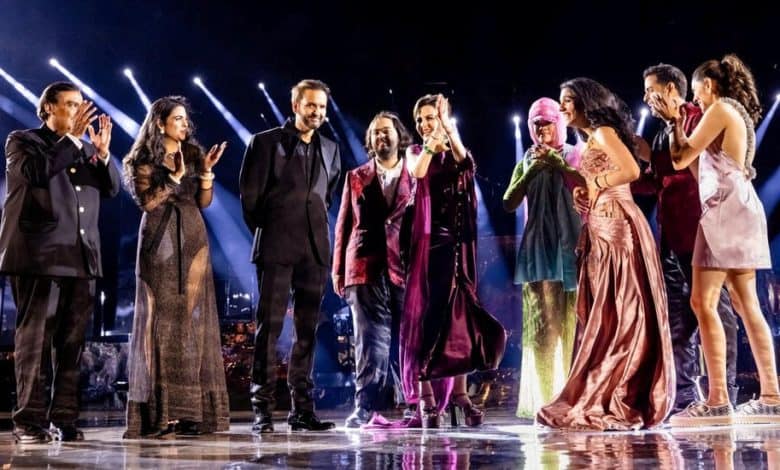Elephants and Rihanna and Billionaires, Oh My!

Rihanna, Mark Zuckerberg, bejeweled elephants and 5,500 drones. Those were some of the highlights of what is likely the most ostentatious “pre-wedding” ceremony the modern world has ever seen.
On a long weekend in early March, members of the global elite gathered to celebrate the impending nuptials of the billionaire business titan Mukesh Ambani’s youngest son, Anant, and Radhika Merchant. Monarchs, politicians and the ultrawealthy, including Bill Gates and Ivanka Trump, descended on an oil refinery city in the western Indian state of Gujarat for an event so extravagant you’d be forgiven for thinking it was, well, a wedding. But that will take place in July. For the long windup to the big day, some of Bollywood’s biggest stars, though invited as guests, took to the stage to sing and dance in what amounted to a bending of the knee to India’s most powerful family.
Watching the event, I couldn’t help thinking of the 1911 durbar, or royal reception, when King George V was proclaimed emperor of India. Once India won its independence from Britain in 1947, it committed itself to becoming a democratic welfare state — an audacious experiment that resulted in what is now the world’s largest democracy. But in advance of this year’s general election, expected to begin in April, the Ambani-Merchant matrimonial extravaganza shows us where true power in India now lies: with a handful of people whose untrammeled wealth and influence has elevated them to the position of India’s shadow leaders.
It’s difficult to imagine the Ambani-Merchant wedding event in an India that isn’t ruled by Prime Minister Narendra Modi. It’s true that the Ambanis have been wealthy for years now and that accusations of favorable treatment from government authorities are not unique to this family or the Modi government. But no other prime minister in India’s history has been so openly aligned with big business, and never before has the concentration of wealth been more apparent. India’s richest 1 percent now own more than 40 percent of the country’s wealth, according to Oxfam. The country has the world’s largest number of poor, at 228.9 million. And according to a newly published study looking at 92 low- and middle-income countries, India had the third-highest percentage of “zero food” children — babies between 6 months and 23 months old who had gone a day or more without food other than breast milk at the time they were surveyed. Oxfam has described this new India as the “survival of the richest.”
For the uberwealthy, this presents a no-holds-barred opportunity to exert their power and influence. In 2017, Mr. Modi introduced a fund-raising mechanism called “electoral bonds” to allow unlimited anonymous donations to political parties. In the five years that followed, the prime minister’s Bharatiya Janata Party received $635 million in contributions through such bonds, 5.5 times as much as its closest rival, the Congress Party. The 2019 Indian general elections cost $8.6 billion, surpassing the estimated $6.5 billion spent on the 2016 U.S. presidential and congressional elections.
Analysis by three independent media organizations in India published on March 14 revealed that a company called Qwik Supply Chains purchased bonds in the scheme worth $50 million. One of the company’s three directors, reporters later uncovered, is also a director at several subsidiaries of Reliance, Mukesh Ambani’s mega-firm. A spokesperson for Reliance said that Qwik is not a Reliance subsidiary and did not respond to further questioning from Reuters. The Indian Supreme Court has since struck down the electoral bond mechanism, calling it unconstitutional, but the delay in addressing the matter has most likely come too late to change the outcome of the forthcoming election, which is widely considered all but certain to go in Mr. Modi’s favor.
